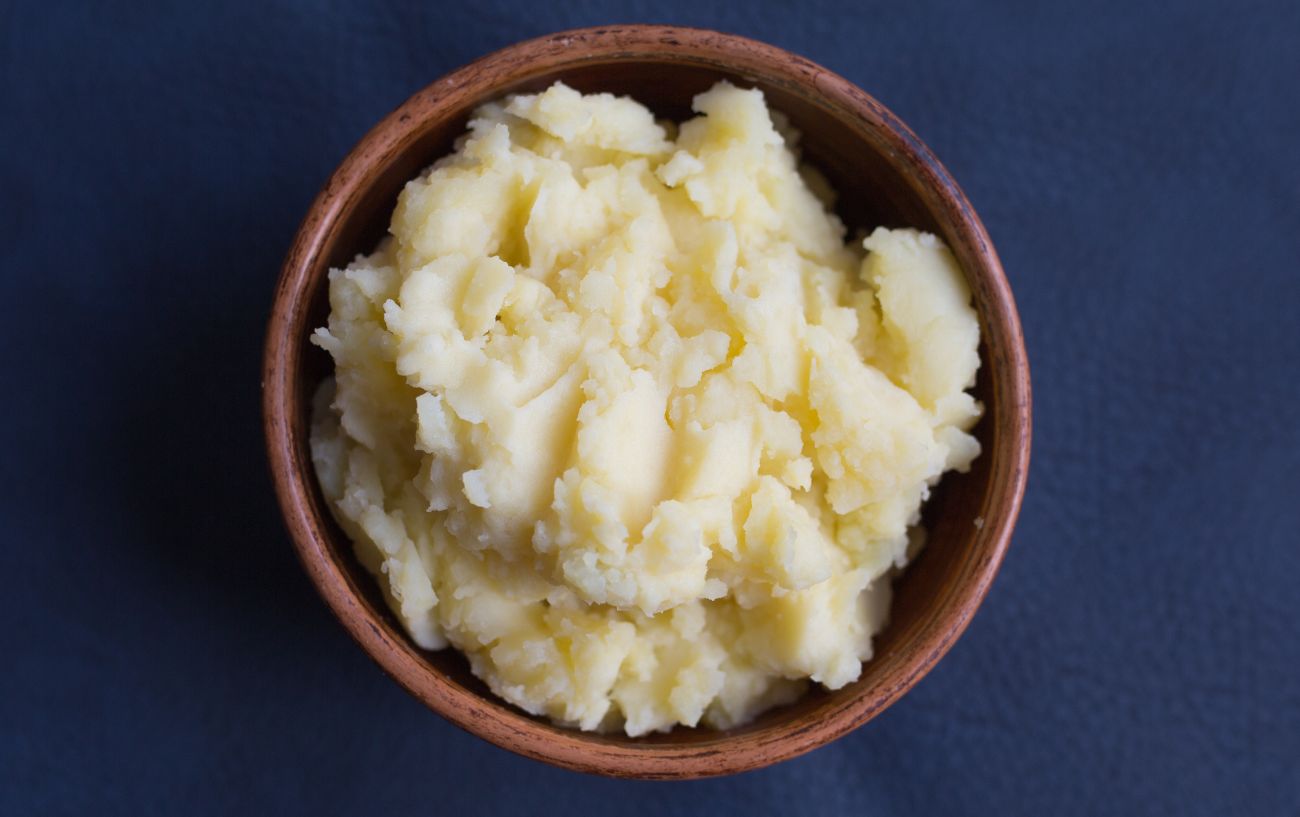While starchy carbohydrates such as potatoes have garnered so much of a bad reputation as being fattening or foods to avoid, potatoes provide several key nutrients and are not inherently fattening for most people.
The strictest potato diet eating plan consists of eating only potatoes for a number of days, promising rapid weight loss.
But, is the potato diet considered healthy eating? What can you eat besides potatoes? Is the Potato diet really good for weight loss?
This diet guide will discuss the Potato diet plan, how to follow it for weight loss, and potential benefits and drawbacks.
Lets get started!

What Is the Potato Diet?
The potato diet is a short-term weight loss diet that falls under the umbrella of a crash diet or fad diet that purports rapid weight loss following some rather extreme or restrictive meal plan.
The popular potato diet may seem like a relatively new fad, but the concept of eating potatoes for weight loss dates back to 1849.
However, the modern potato fad diet was popularized in 2016 by Tim Steele, who published Potato Hack: Weight Loss Simplified, a potato diet book in which Steele suggests that potatoes are the best diet pill ever invented.
Proponents of the potato diet weight loss plan suggest that you can lose one pound (0.45 kg) per day in just a few days on the potato diet plan.
In addition to eating potatoes for weight loss, Tim Steele claims potatoes contain natural drug-like agents that affect inflammation, hunger, insulin, sleep, dreams, mood, and body weight.
As the name describes, the potato diet plan centers around consuming only potatoes for 3-5 days. However, some other more lenient versions of the potato diet exist.

How Do You Follow the Potato Weight Loss Diet Plan?
There are different versions of the potato diet program for weight loss, so the specifics of the potato diet meal plan or recipes will vary depending on the specific diet type you are following.
Potato Diet Rules
- Rule 1. Consume only plain, cooked potatoes (steamed potatoes, baked potatoes, roasted potatoes, or mashed potatoes but not fried or sauteed) for three to five days. You can only have regular white potatoes such as White Russet, Yukon Gold, and red gold potatoes.
- Rule 2. Aim to eat 25 pounds (0.92.3 kg) of potatoes daily.
- Rule 3. Do not use condiments or toppings on your potatoes, such as ketchup, butter, sour cream, cheese, or chives. Salt is okay if you must use it, but it should be avoided.
- Rule 4. Do not eat any other foods, including veggies, sweet potatoes, or fresh and dried herbs.
- Rule 5. Only drink non-caloric beverages such as water, plain tea, seltzer water, or black coffee.
- Rule 6. Perform light exercise and walking only, but no vigorous exercise.
- Rule 7. Do not take any unprescribed or OTC dietary supplements, though you should take your usual medications as directed by your physician.

Of course, the potato diet centers around eating potatoes, but some potato diet meal plans include plant-based foods other than solely potatoes.
For example, Andrew Taylors Spud Fit Challenge allows for sweet potatoes, along with a few herbs, spices, and fat-free condiments.
However, all potato diet plans are vegan and low in fat.
On some potato diet weight loss plans, you do not need to count calories or measure portion sizes of your potato diet meals.
Instead, somewhat like the Volumetrics diet plan, you are supposed to eat until you are satisfied but stop before you are truly full, filling your body with relatively low-calorie but heavy and filling potatoes and other low-calorie foods.
The purpose of this high-volume approach to eating on the potato diet plan is that you will feel satiated on fewer calories because your stomach will be full, helping reduce cravings and prevent eating higher-calorie foods.
Ultimately, this is supposed to help you lose weight and manage your appetite without counting calories or restricting portion sizes.

What Can You Eat On the Potato Diet?
Potatoes
As mentioned, the main potato diet involves eating just potatoes and generally regular white potatoes such as Idaho and russet potatoes.
However, depending on how lenient the potato diet meal plan you are following is, you may also be able to eat different types of potatoes, including yellow potatoes, sweet potatoes, purple potatoes, and other varieties.
Herbs and Seasonings
The strict meal plan only allows for plain potatoes with minimal salt, but some of the more lenient potato diet weight loss plans allow for fresh or dried herbs like parsley, chives, basil, cilantro paprika, black pepper, cumin, and crushed red pepper flakes.
You may also be allowed to eat fat-free condiments such as salsa, mustard, and homemade ketchup.

Beverages
Only calorie-free beverages are permitted on the potato diet meal plan. Examples include water, plain coffee, and plain tea.
As can be seen, the potato diet food list is extremely limited.
Here are the foods you need to avoid on the potato diet:
- Vegetables other than potatoes
- Fruits
- Whole grains
- Legumes such as beans and lentils
- Dairy products including milk, butter, sour cream, and cheese on your potatoes
- Nuts
- Seeds
- Added fats such as oil, avocado, butter
- Processed foods, including potato chips, tater tots, potato latkes, and potato skins
- Meat, poultry, seafood, fish
- Tofu and other soy foods
Eggs - Condiments with sugar and fat, such as salad dressing, barbeque sauce, guacamole, etc.
- Sweets
- Fried food

What are the Health Benefits and Risks of Following a Potato-Only Diet?
So, are there any health benefits to eating potatoes?
Potatoes provide several important nutrients and are not inherently fattening for most people. They are particularly rich in potassium and contain some fiber and vitamin C, among other micronutrients.
According to the USDA, 100 grams of russet potatoes provides about 80 calories, 18 grams of carbs, 2 grams of protein, and 1.3 grams of fiber.1FoodData Central. (n.d.). Fdc.nal.usda.gov. https://fdc.nal.usda.gov/fdc-app.html#/food-details/170027/nutrients
Tim Steeles potato meal plan suggests eating 2-5 pounds of potatoes daily.
There are 454 grams in one pound, so 2-5 pounds of potatoes per day converts to 909 – 2270 grams.
Therefore, the potato diet calories would work out to about 720-1800 calories per day, and only 18- 44 grams of protein.

The 2020-2025 United States Dietary Guidelines suggest that adult men should consume a minimum of 2,2002,400 calories, while adult females should consume at least 1,6001,800 calories per day.2United States Department of Agriculture. (2020). Dietary Guidelines for Americans 2020 -2025 . https://www.dietaryguidelines.gov/sites/default/files/2020-12/Dietary_Guidelines_for_Americans_2020-2025.pdf
According to Harvard Health, the minimum calories a day adults should eat unless otherwise guided by a healthcare professional is 1200 calories a day for a woman and 1500 calories a day for a man.3Publishing, H. H. (n.d.). Calorie counting made easy. Harvard Health. https://www.health.harvard.edu/staying-healthy/calorie-counting-made-easy#:~:text=However%2C%20calorie%20intake%20should%20not
It is also unsafe to try to lose 1 pound per day, as this takes a caloric deficit of 3,500 calories. The potato diet protein intake is also inadequate.
The daily value (DV) for protein for adults is 50 grams per day. The daily value represents the average intake that works for most people.4Nutrition, C. for F. S. and A. (2023). Daily Value on the Nutrition and Supplement Facts Labels. FDA. https://www.fda.gov/food/nutrition-facts-label/daily-value-nutrition-and-supplement-facts-labels
The recommended daily intake of protein is set at 46-63 grams for most adults, and up to 65 grams per day for women who are pregnant or breastfeeding.5National Research Council (US) Subcommittee on the Tenth Edition of the Recommended Dietary Allowances. (2013). Protein and Amino Acids. Nih.gov; National Academies Press (US). https://www.ncbi.nlm.nih.gov/books/NBK234922/
The RDI represents the nutrient requirements for 97-98% of healthy individuals.

Furthermore, the National Academy of Medicine also recommends that adults get a minimum of 0.8 grams of protein for every kilogram of body weight per day, which works out to just over 7 grams of protein for every 20 pounds of body weight.6Read Dietary Reference Intakes for Energy, Carbohydrate, Fiber, Fat, Fatty Acids, Cholesterol, Protein, and Amino Acids at NAP.edu. (n.d.). In nap.nationalacademies.org. https://nap.nationalacademies.org/read/10490/chapter/1
Using these recommendations, a 180-pound person would need about 63 grams of protein each day, while a 220-pound person would need 80 grams of protein per day.
Even if you eat a full five pounds of potatoes daily on your potato diet, you will fall below every protein recommendation listed.
Overall, like any highly restrictive diet that eliminates too many food groups and prioritizes just a couple of foods, the potato diet is not recommended for health or weight loss.
It is not a nutritionally balanced diet, and any diet followed for rapid, short-term weight loss is inherently not designed to be a healthy diet for weight loss.
More concerningly, following the potato diet for weight loss for an extended period of time can lead to nutritional deficiencies, disordered eating, fear of certain food groups, and a range of health problems stemming from consuming too few calories and failing to meet certain nutritional needs.7Tanoue, K., Matsui, K., & Takamasu, T. (2012). Fried-Potato Diet Causes Vitamin A Deficiency in an Autistic Child. Journal of Parenteral and Enteral Nutrition, 36(6), 753755. https://doi.org/10.1177/0148607111436280
If you are looking for a diet for weight loss or weight management, consider speaking with a nutritionist or a registered dietitian to help find which dietary plan will work best for you and your needs.




